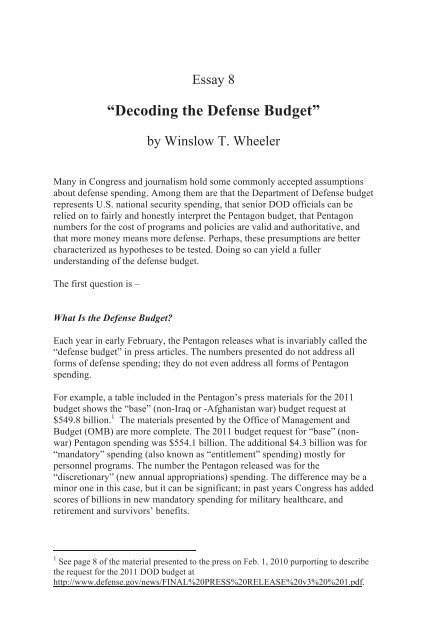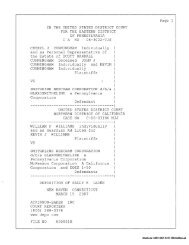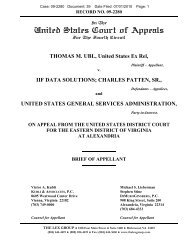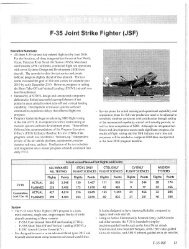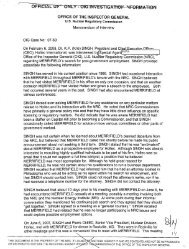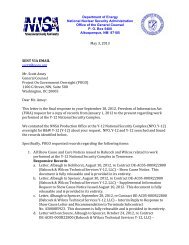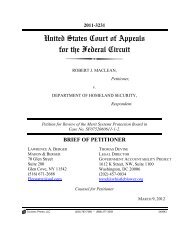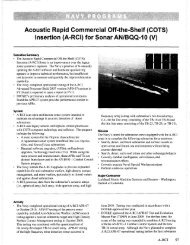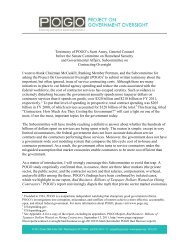The Pentagon Labyrinth
The Pentagon Labyrinth
The Pentagon Labyrinth
You also want an ePaper? Increase the reach of your titles
YUMPU automatically turns print PDFs into web optimized ePapers that Google loves.
Essay 8<br />
“Decoding the Defense Budget”<br />
by Winslow T. Wheeler<br />
Many in Congress and journalism hold some commonly accepted assumptions<br />
about defense spending. Among them are that the Department of Defense budget<br />
represents U.S. national security spending, that senior DOD officials can be<br />
relied on to fairly and honestly interpret the <strong>Pentagon</strong> budget, that <strong>Pentagon</strong><br />
numbers for the cost of programs and policies are valid and authoritative, and<br />
that more money means more defense. Perhaps, these presumptions are better<br />
characterized as hypotheses to be tested. Doing so can yield a fuller<br />
understanding of the defense budget.<br />
<strong>The</strong> first question is –<br />
What Is the Defense Budget?<br />
Each year in early February, the <strong>Pentagon</strong> releases what is invariably called the<br />
“defense budget” in press articles. <strong>The</strong> numbers presented do not address all<br />
forms of defense spending; they do not even address all forms of <strong>Pentagon</strong><br />
spending.<br />
For example, a table included in the <strong>Pentagon</strong>’s press materials for the 2011<br />
budget shows the “base” (non-Iraq or -Afghanistan war) budget request at<br />
$549.8 billion. 1 <strong>The</strong> materials presented by the Office of Management and<br />
Budget (OMB) are more complete. <strong>The</strong> 2011 budget request for “base” (nonwar)<br />
<strong>Pentagon</strong> spending was $554.1 billion. <strong>The</strong> additional $4.3 billion was for<br />
“mandatory” spending (also known as “entitlement” spending) mostly for<br />
personnel programs. <strong>The</strong> number the <strong>Pentagon</strong> released was for the<br />
“discretionary” (new annual appropriations) spending. <strong>The</strong> difference may be a<br />
minor one in this case, but it can be significant; in past years Congress has added<br />
scores of billions in new mandatory spending for military healthcare, and<br />
retirement and survivors’ benefits.<br />
1 See page 8 of the material presented to the press on Feb. 1, 2010 purporting to describe<br />
the request for the 2011 DOD budget at<br />
http://www.defense.gov/news/FINAL%20PRESS%20RELEASE%20v3%20%201.pdf.


